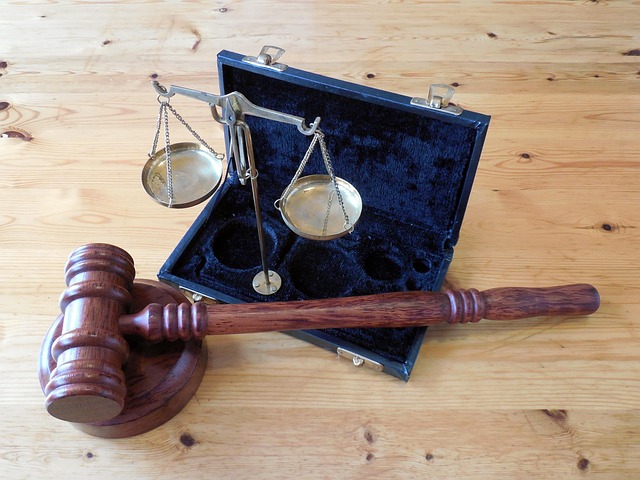In litigation risk management, understanding criminal law is crucial for winning high-stakes cases. Criminal defense attorneys navigate complex systems, scrutinize allegations, gather and analyze evidence, and craft strategic arguments. Best self-defense tactics involve tailored strategies, thorough document review, cross-examination, and meticulous evidence management to protect clients' rights and secure favorable outcomes, especially in multi-jurisdictional cases with significant reputational risks.
In the intricate dance of criminal litigation, effective risk management is the best self-defense tactic for any defendant. This article provides a comprehensive guide to navigating the complex landscape of criminal cases. We explore foundational understanding of criminal litigation as a defense strategy, emphasizing strategic planning for robust case fortification. Discover powerful legal tactics to counter accusations and learn evidence management techniques that safeguard your client’s integrity. By implementing these best self-defense tactics, you can navigate challenging scenarios with confidence and skill.
- Understanding Criminal Litigation: A Foundation for Defense
- Strategic Planning: Building Your Case Fortification
- Legal Tactics: Weapons in Your Arsenal Against Accusations
- Managing Evidence: Protecting Your Client's Integrity
Understanding Criminal Litigation: A Foundation for Defense

In the realm of litigation risk management, understanding criminal litigation serves as a cornerstone for crafting effective self-defense tactics in high-stakes cases. Criminal defense attorneys must be adept at navigating complex legal landscapes, where every detail can significantly impact their client’s outcome. A robust defense strategy begins with comprehending the intricacies of the criminal justice system and identifying the best self-defense tactics tailored to each unique case. This involves dissecting allegations, gathering evidence, and employing strategic arguments to challenge the prosecution’s case.
Mastery of general criminal defense principles is vital for ensuring successful outcomes in both simple and intricate matters. From less serious offenses to cases involving influential philanthropic and political communities, a deep understanding of the law enables attorneys to anticipate potential pitfalls and devise robust defenses. By staying abreast of legal precedents, interpreting statutes, and applying them thoughtfully, defense attorneys can protect their clients’ rights and achieve favorable resolutions in even the most challenging criminal litigation scenarios.
Strategic Planning: Building Your Case Fortification

Strategic planning is a cornerstone of successful litigation risk management, acting as your shield and sword in navigating high-stakes cases. It involves meticulously preparing for every conceivable outcome, much like employing the best self-defense tactics in criminal cases. This proactive approach ensures that you’re not just reacting to events but anticipating them, allowing for swift adjustments when challenges arise.
By thoroughly assessing the facts of your case and exploring various legal strategies, you can build a robust defense that aims for achieving extraordinary results. This includes understanding potential vulnerabilities, identifying strengths, and developing a clear, decisive plan – one that could lead to a complete dismissal of all charges if circumstances align perfectly. Effective strategic planning is about empowering yourself with knowledge, resources, and a calculated mindset, making certain your legal representation is not just adequate but exceptional in protecting your interests.
Legal Tactics: Weapons in Your Arsenal Against Accusations

In any legal battle, particularly criminal cases, possessing an arsenal of self-defense tactics is paramount to protecting your interests. When faced with accusations, understanding and employing the best self-defense strategies can significantly influence the outcome. Legal tactics serve as powerful weapons, offering a robust defense against potential charges. One key approach involves thorough document review and evidence analysis; examining the facts critically can expose weaknesses in the prosecution’s case, leading to strategic decisions on how to proceed.
Another effective tactic is skilled cross-examination, where attorneys can challenge witnesses’ testimonies and credibility. This technique not only weakens the prosecution’s stance but also provides insights into potential loopholes or inconsistencies. Additionally, recognizing and availing oneself of legal defenses tailored to specific charges is crucial, especially for corporate and individual clients alike. By avoiding indictment through proactive measures and strategic planning, one can significantly reduce the risk of costly jury trials and ensure a more favorable outcome.
Managing Evidence: Protecting Your Client's Integrity

Managing evidence effectively is a cornerstone of litigation risk management, serving as the best self-defense tactic in criminal cases. It involves a meticulous process of collecting, organizing, and preserving relevant information to support your client’s case. This includes tangible evidence like physical objects, documents, and digital media, as well as witness statements and expert opinions. By ensuring that all this material is properly handled, secured, and presented, you protect your client’s integrity and strengthen their defense strategy.
In today’s complex legal landscape, where cases often span across multiple jurisdictions and involve vast amounts of data, an unprecedented track record in evidence management can make the difference between winning challenging defense verdicts and facing setbacks. This is particularly crucial for the philanthropic and political communities, where reputational damage from even perceived misconduct can be severe. Therefore, a robust evidence management strategy isn’t just about adhering to legal requirements; it’s about safeguarding your client’s reputation and ensuring their rights are fully protected throughout the litigation process.
Effective litigation risk management is key to navigating criminal cases successfully. By understanding the intricacies of criminal litigation, employing strategic planning, and utilizing robust legal tactics, you can fortify your case and protect your client’s interests. Remember, the best self-defense tactics in criminal cases involve meticulous evidence management, ensuring integrity and transparency throughout the process. This comprehensive approach allows for a robust defense, ultimately fostering fairness and justice.






